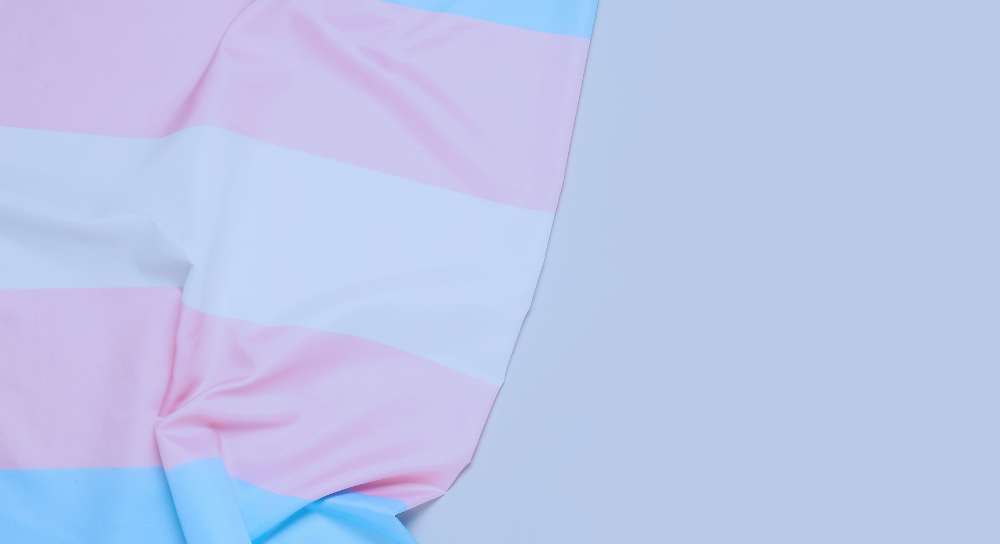
Looking back on Trans Day of Remembrance
Trans Day of Remembrance is commemorated on the 20th November every year to honour the lives of transgender people whom we have lost due to Transphobic Violence. A week prior to this is Transgender Awareness week – which helps raise visibility for the community whilst also celebrating and uplifting its members. The awareness period was first instated by activist Gwendolyn Ann Smith, as a vigil to honour the memory of Rita Hester – a trans woman who was murdered that year. Though her death started a legacy and created more visibility to the disproportionate number of trans people who are subject to violence, hate, and murder, her name has faded from the memory of many – and her murder has still not been solved to this day.
2021 was recorded as the ‘deadliest year’ for trans people since records started. In the US, homicides towards trans people have doubled in the last 4 years since 2017, and globally it was recorded that 375 murders were accounted. This number doesn’t account for areas or countries where trans people are not recognised - in reality, the number may be much larger. The violence increases significantly with trans women, especially trans women of colour – showing the intersectionality of the issue.
I have recently connected with Paul Kanyanu, who is a queer leader for the Kakuma Camps in Kenya, a refugee camp in which queer people especially are horrifically persecuted. Paul couldn’t attend his first call with me as he had to care for his colleague in hospital who was brutally attacked just a day previously.
**Trigger warning**
When he was able to speak with me another time, he described in detail the daily torture that the queer community are subjected to there, how trans people are forcibly undressed in the camps to ‘know what gender they are’, before being further beaten and shamed. He described to me how just two days before, a trans refugee was brutally attacked, sustaining life-threatening injuries to her knee and neck. Other queer people are being attacked with machetes, and another lost his eye only a day after we spoke.
When contacting the police and government in Kenya, they are told that they don't accept trans and gay identities in Kenya, so they will do nothing to stop this. Paul himself was told by the police that they are “tired” of hearing about LGBTQ cases, and UNHCR themselves have said they have no safe space for them to be taken. Though money has been raised from LGBTQ+ folk around the world, every time someone is taken to the hospital thousands must be spent, and with no government entity willing to help, the cycle only keeps repeating.
Looking to the UK, where I personally live, the metropolitan police have compiled statistics of the number of hate crimes committed against trans and gender non-conforming people in the London area, starting in 2001. Looking at 2001 then, 23 crimes were recorded, and shockingly, in 2021 (the last full recorded year) – this number had increased to 428. Looking at proceedings against the accused, the statistics are even more shocking. In 2001, only 2 were charged (one of which was a caution) meaning 8% of crimes were followed up. In 2021, out of 428 hate crimes, only 10 were followed up with proceedings, bringing the number down to 2%. This shows not only a societal increase in violence against the trans community but also gross misconduct by the police to follow these up. Not surprising in the era of Sarah Everard, but still disappointing. 6 out of 10 of those who were actually charged in 2021 were merely given a fixed charge penalty notice, which under UK law isn't even classed as a criminal offense. This sets an incredibly dangerous precedent for both the trans and the wider LGBTQ+ community.
This is just a small microcosm of a small country in the world, and sometimes we as LGBTQ+ people and allies forget to look at the wider picture. Though the severity is varying, trans violence is everywhere. We can’t change the world on our own, but together we can become a powerful voice standing up against trans persecution, by standing behind our fellow humans against these atrocities.
Vigils for Trans Day of Remembrance are organised across November to honour our lost lives globally, and often include a reading list of those lives taken this year. Over 20 years after the death of Rita Hester, societal attitudes toward trans people are seemingly stagnating
Trans lives matter, and the world needs to know.
Around the 20th November, vigils are held globally to remember those who we lost this year. Below are examples of some you can attend.
Go to a vigil, event, or protest this month, and take the first step to support the transgender community.
UK:
Reading: https://www.tdor-reading.org.uk/
Manchester: https://manchesterstudentsunion.com/events/id/3356-transgender-day-of-remembrance-2022-st-peter-s-hou
London: https://www.fitzroviachapel.org/event/trans-day-of-remembrance/
US:

